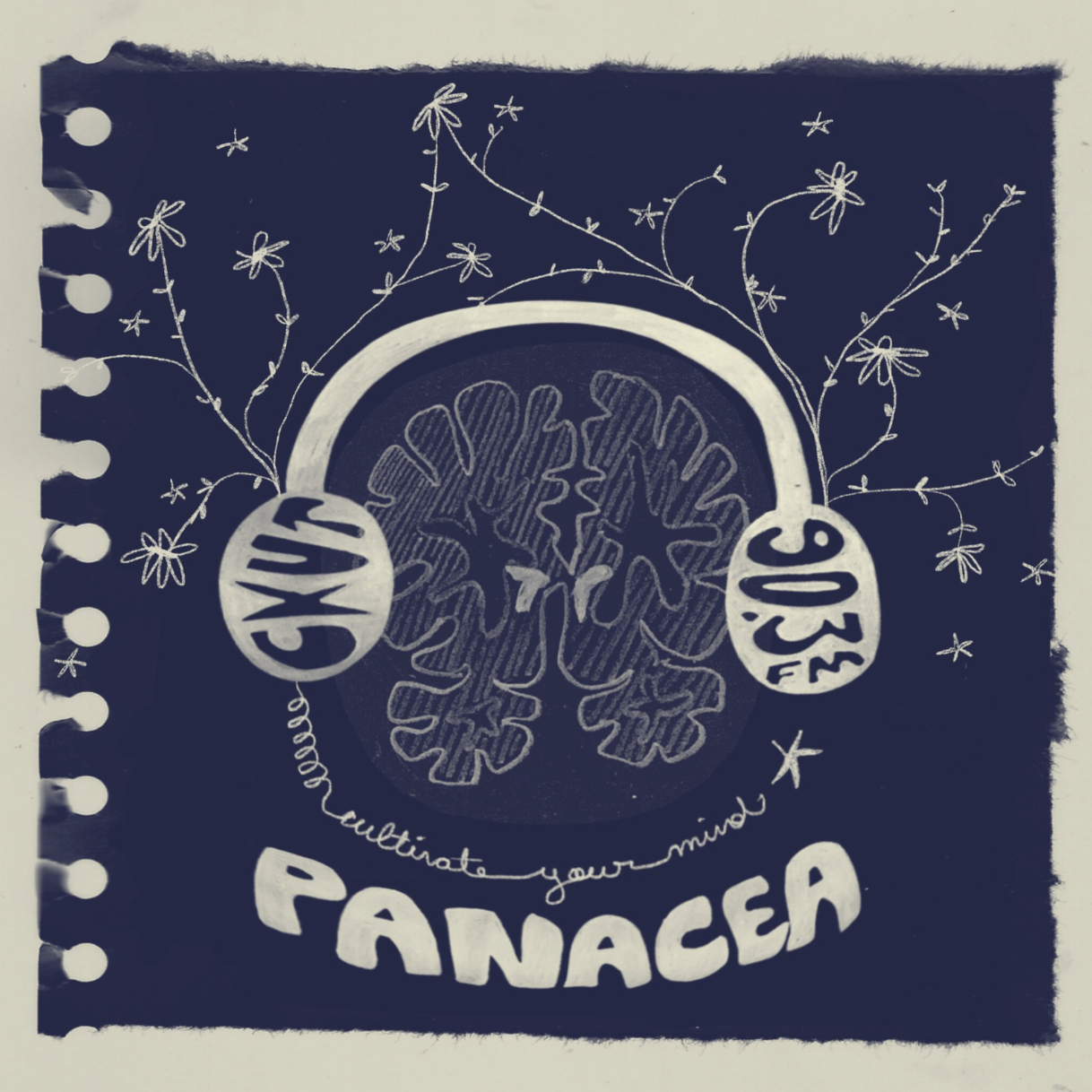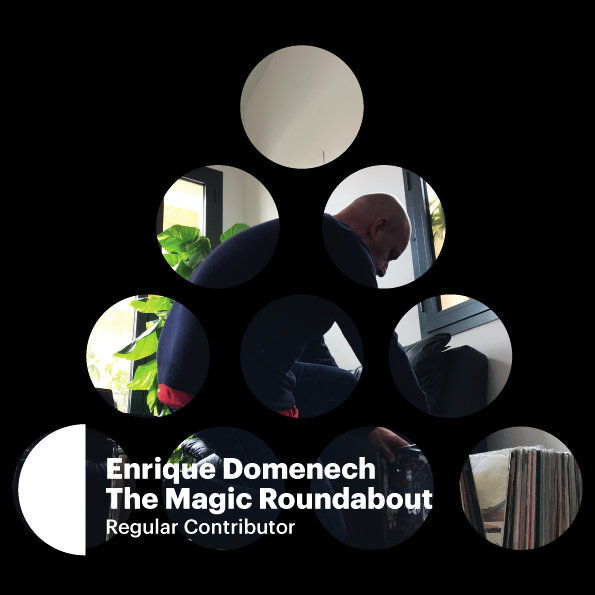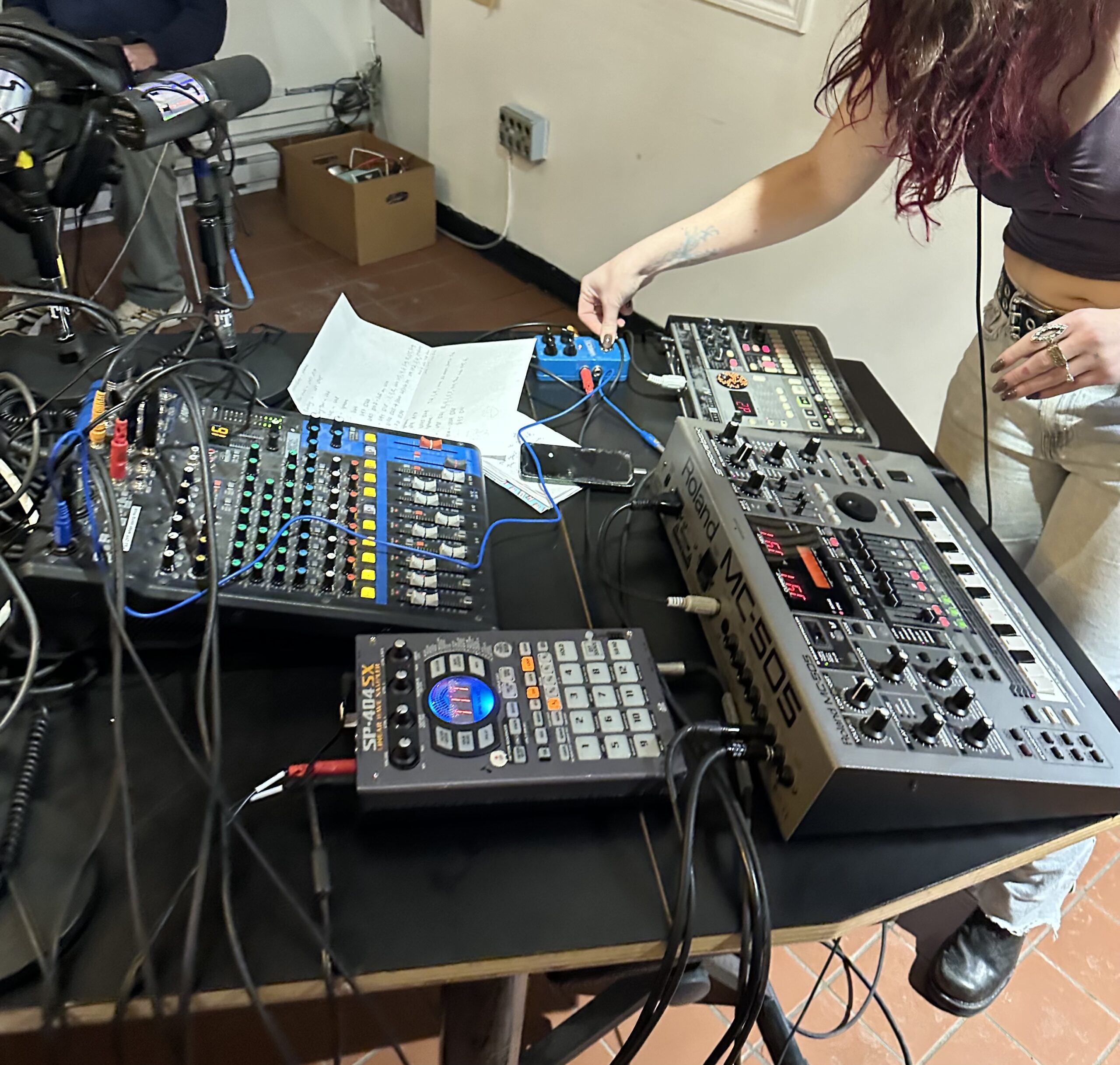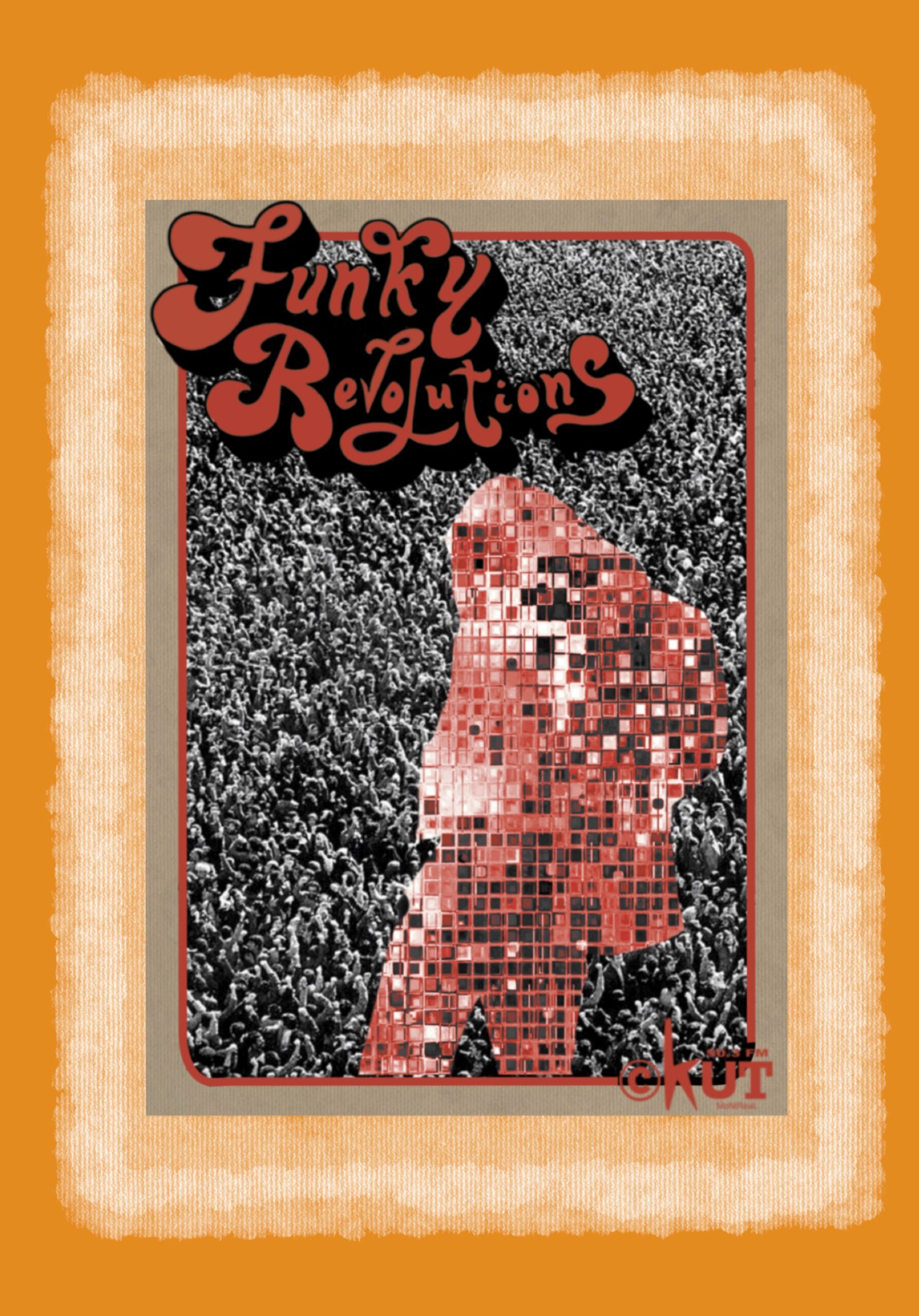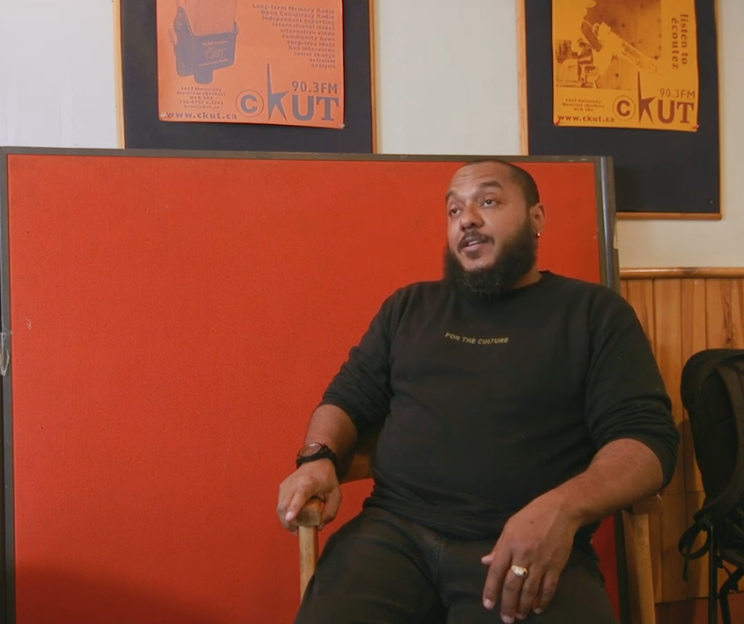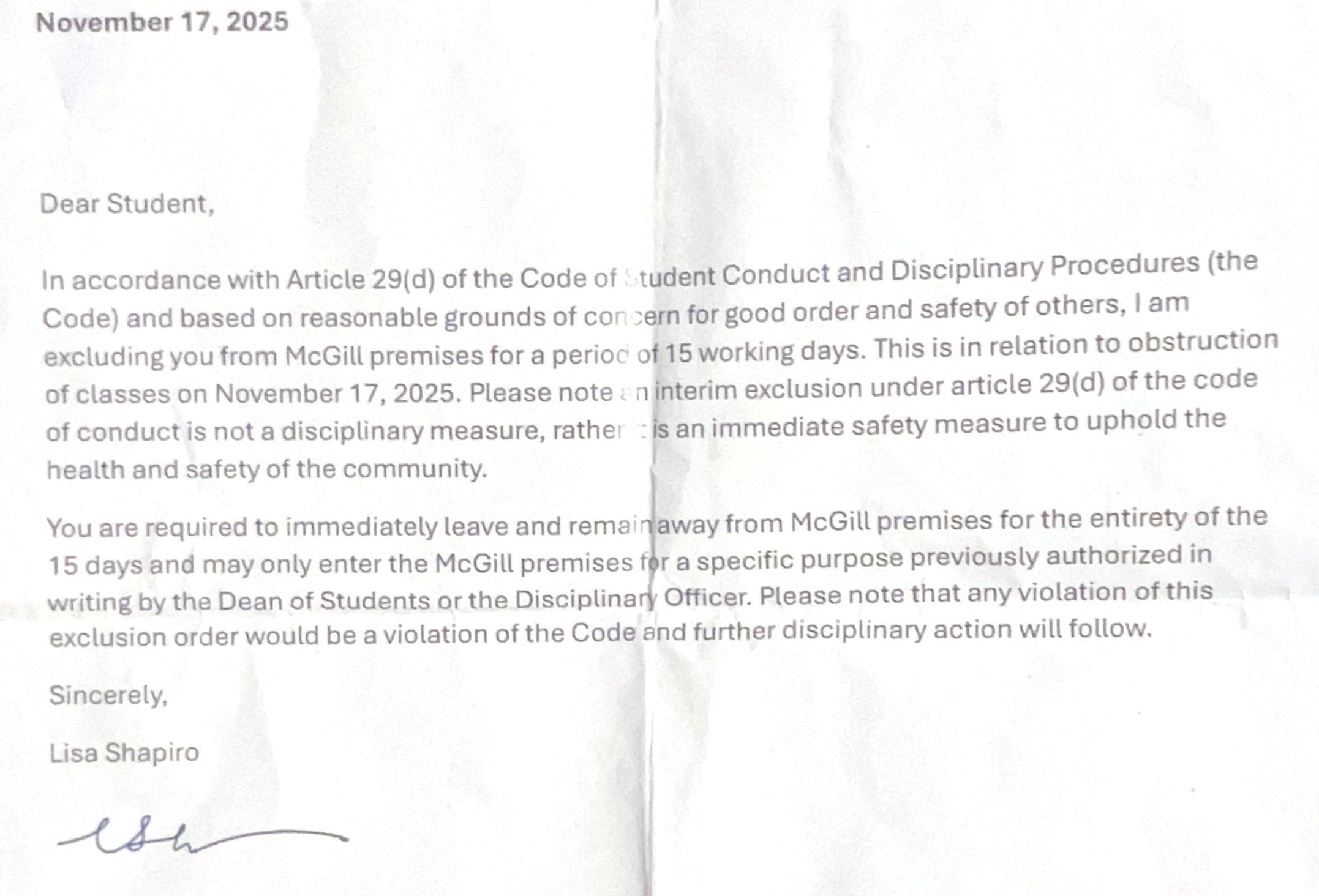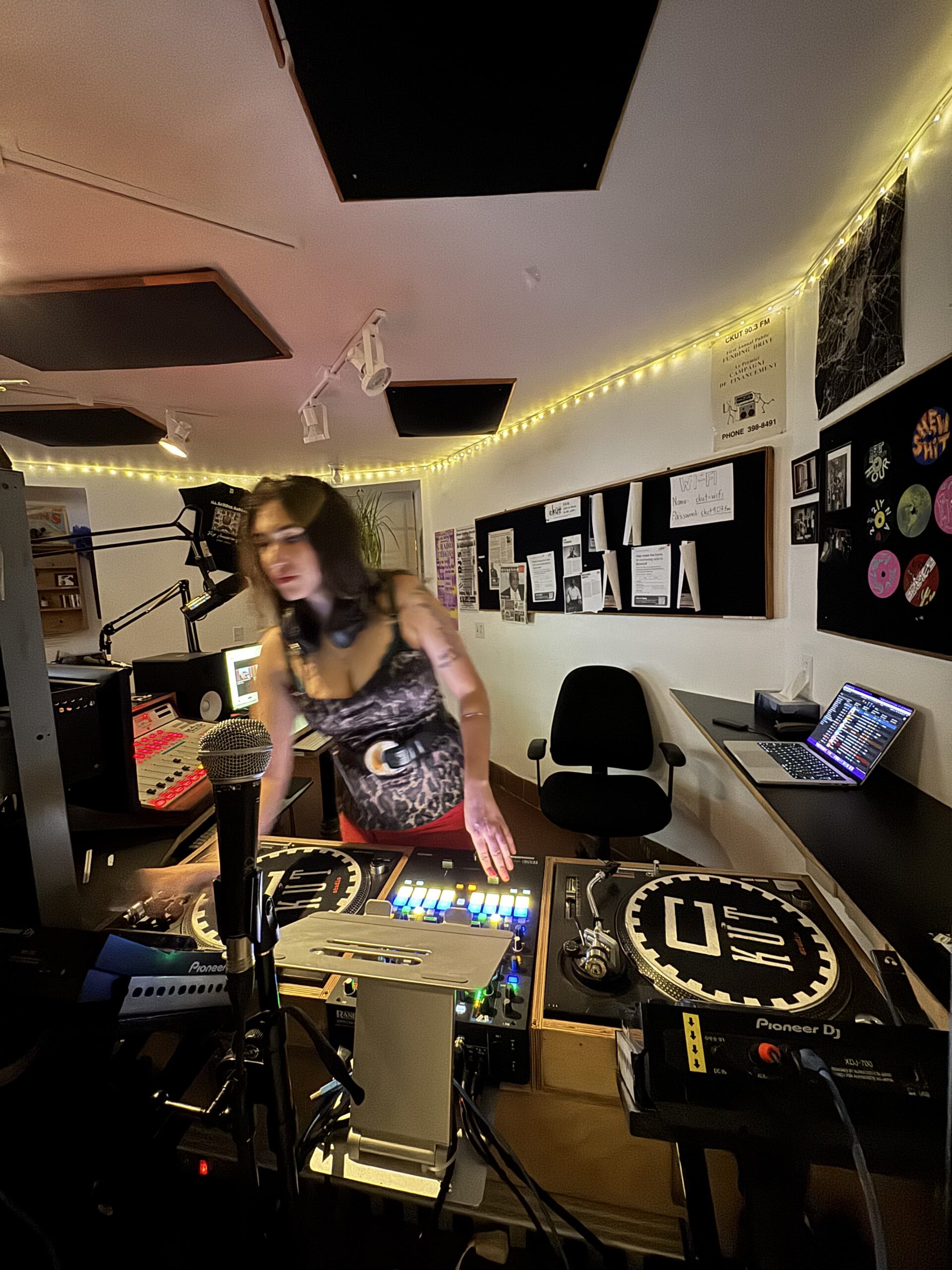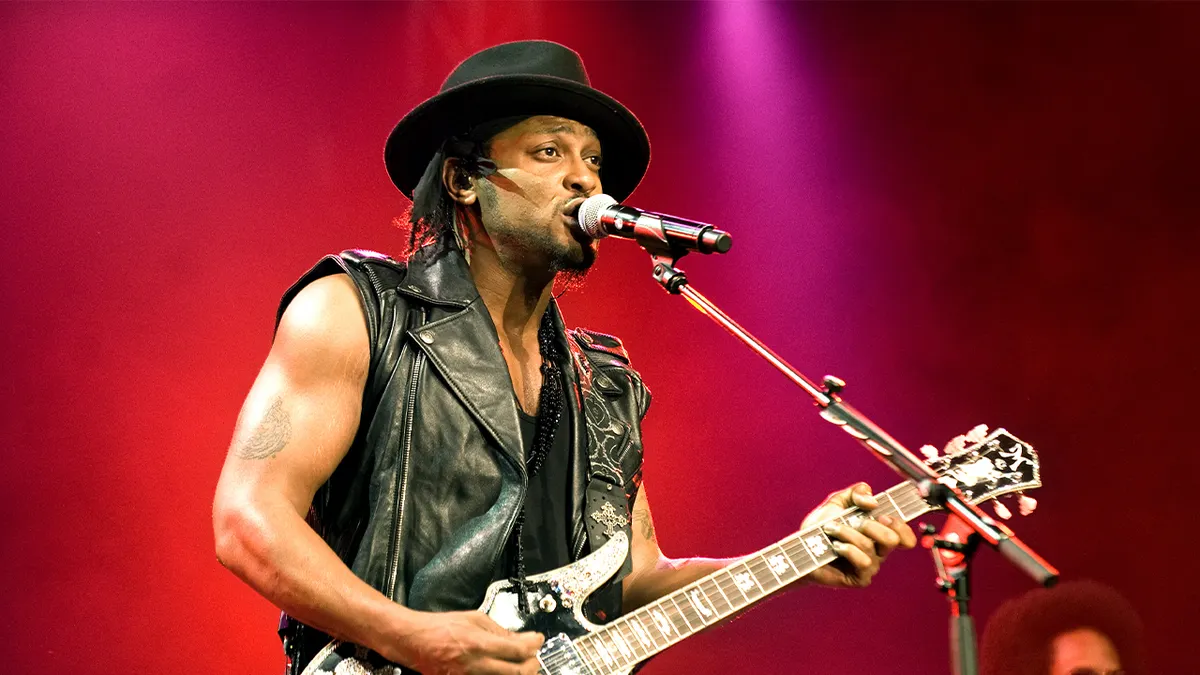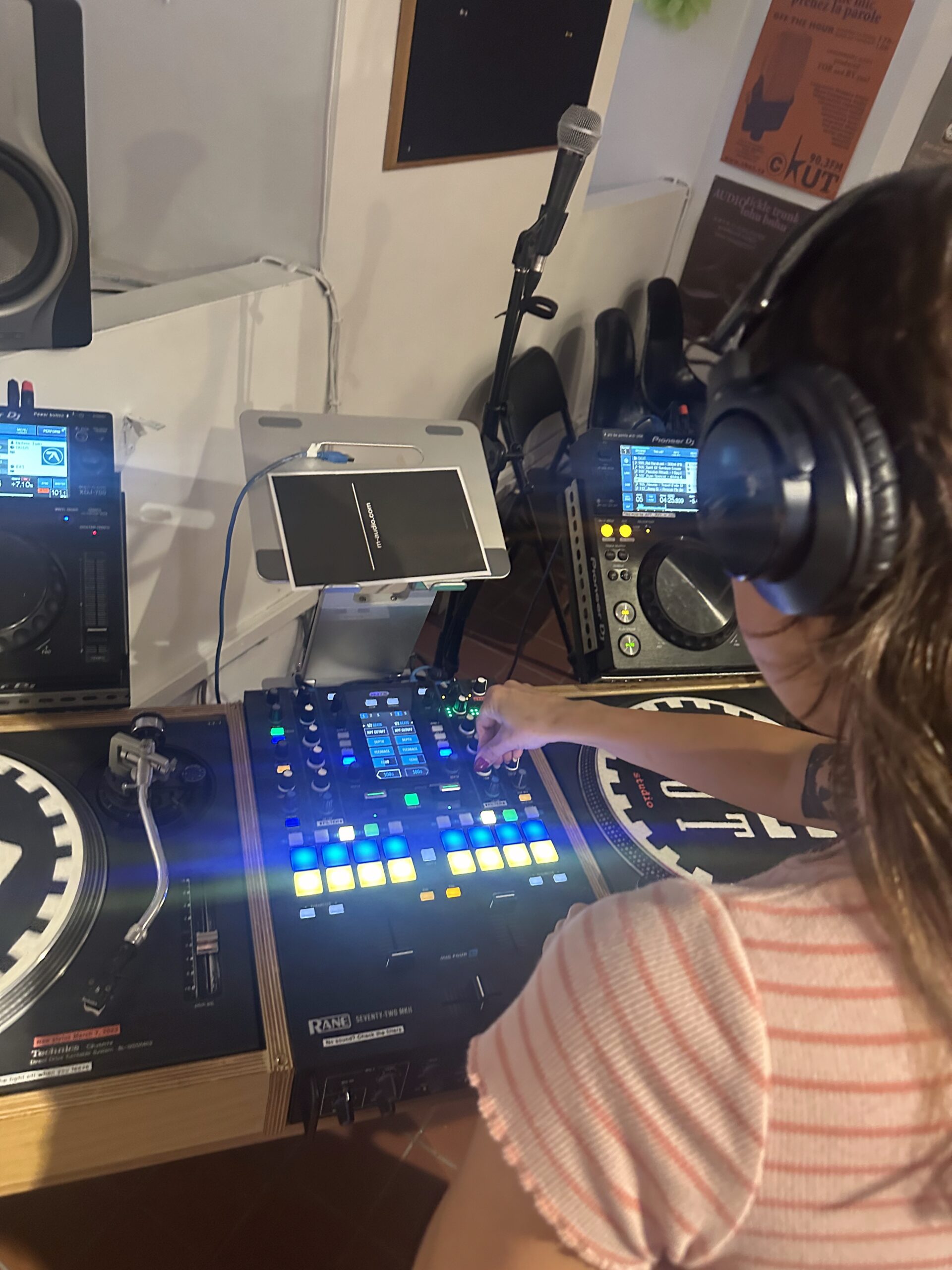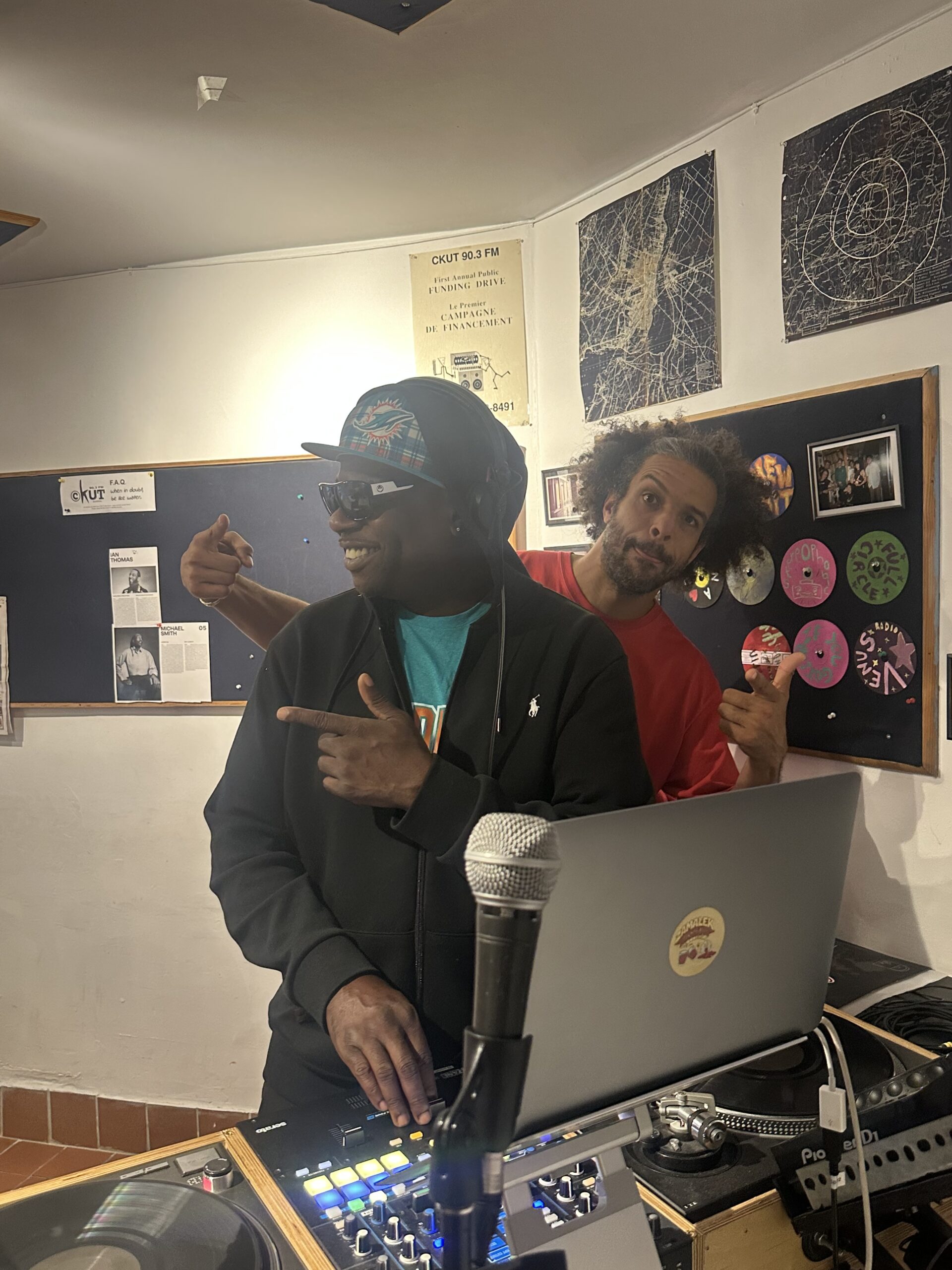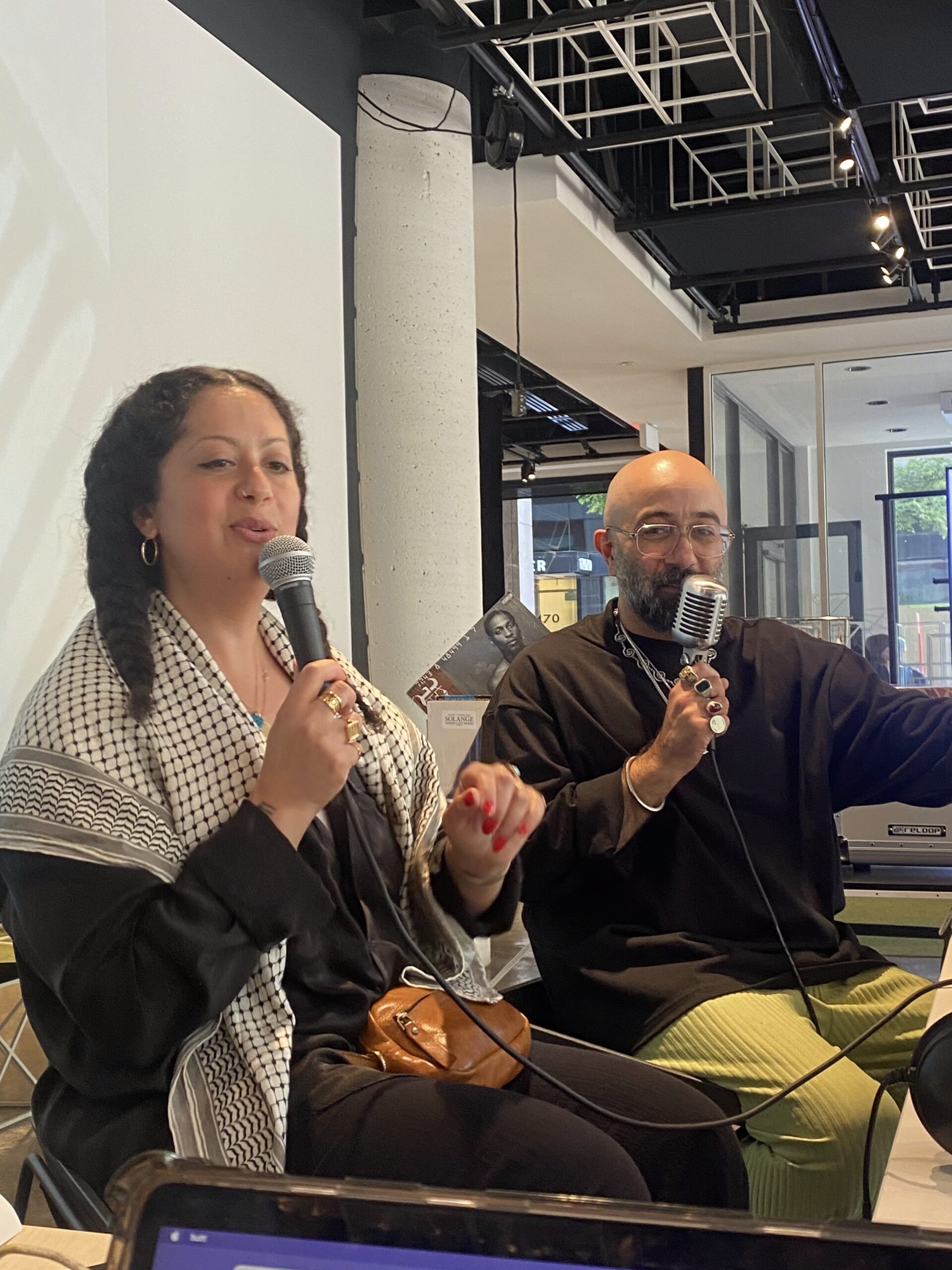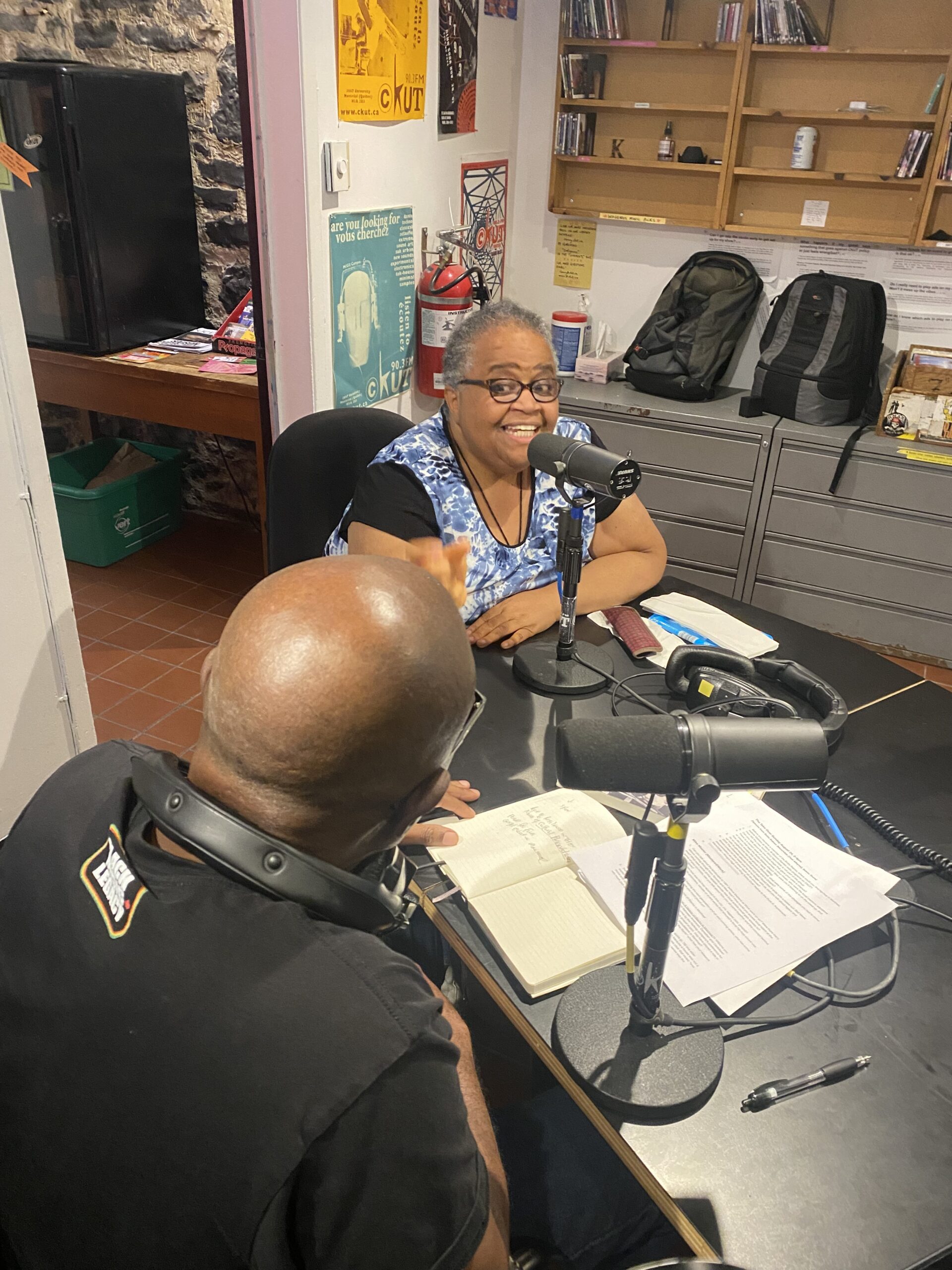Fringe Fest Review: Hedwig and the Angry Inch
Spoken Word Intern Adrienne reviews Mother Tongue's production of "Hedwig and the Angry Inch" at the 2024 Montreal Fringe Fest.
By Adrienne Roy, published Wednesday 19 June 2024

Home to the National Theatre School, the Monument-National is the oldest operational theatre in Montreal. It boasts six venues, but around 7:20 on Tuesday, June 11, a sold-out crowd eagerly waited outside La Balustrade for the opening night of Hedwig and the Angry Inch at the 2024 Montreal Fringe Festival. John Cameron Mitchell and Stephen Trask wrote the musical, which premiered off-Broadway in 1998. Now, it is Mother Tongue Productions and director Keith Fernandez who helm the Tony-award winning musical for its six-day run at Montreal Fringe and an additional three shows from June 18-20.
La Balustrade is a cozy venue. The show’s props sat on the stage and an overhead projector (that is probably older than some of the actors) projected a slightly faded image of the musical’s logo on the wall. When I entered the room, I thought — rather close-mindedly — that it would be too small for Hedwig’s complex and larger-than-life quintessence to adequately flourish. I couldn’t have been more wrong.
Hedwig and the Angry Inch draws from Aristophanes’ speech in Plato’s Symposium, in which he claims the human body initially consisted of two different people, with two sets of limbs, genitals, minds, and so on. These characteristics endowed humankind with a spiritual and physical potency that threatened the (Greek) gods. To retaliate against their collective strength, Zeus separated every person from their other half, and Apollo turned their heads so they would always face the gash, reminding them of what they had lost and what they would dedicate their lives to mending. The 1998 musical follows Hedwig, a queer person born in East Berlin who marries Luther, an American GI, and immigrates to the United States during the Cold War. But Hedwig can’t marry Luther as a man, so Luther coerces the titular character to undergo a clandestine gender reassignment surgery that goes south. Hedwig ends up with a one-inch mound, her angry inch.
The couple move to Junction City, Kansas, but one year later, Luther leaves Hedwig for a man. With Luther out of her life, the tone of the musical shifts. The first half of the musical is brimming with the distinctive wit and resilience with which mainstream media often characterizes queer individuals. Alice Siregar, who brilliantly plays Hedwig and Tommy Gnosis — Hedwig’s true love, the one to whom she devotes much of the story’s second half — develops a rapport with the audience through direct address, serving as the omniscient narrator of her own story. The audience is meant to be convinced that Hedwig knows her story from start to finish, that her setbacks are a part of her journey towards self-discovery. The song “Angry Inch” is an analogy of this process: It’s always “six inches forward and five inches back.”
After Luther leaves, Hedwig and Tommy’s relationship evolves. However, when Tommy discovers Hedwig’s angry inch, he leaves her and steals the music they were collaborating on. It is also around this point in the musical that Hedwig learns of the collapse of the Berlin Wall, which becomes the catalyst for an existential crisis that had been simmering since her surgery. The suspension of Hedwig’s meta commentary in favour of more musical numbers conveys a pivotal narrative shift, one that reflects Hedwig’s psyche. The subdued lighting and a costume change from a cheetah-print blouse to a black dress with red slits across the front not only reinforces the gravity of Hedwig’s inner torment, but communicates her pain and uncertainty in a way that language alone cannot accomplish.
Playing a character like Hedwig is far from easy, but it is impossible to tell from Siregar’s performance. She impressively holds Hedwig’s German accent for the duration of the show (even in song), but their grasp of the character surpasses what is on the page. When one of her wigs unexpectedly falls off her head, Siregar picks it up without letting their guard down, instead using the mishap as an opportunity to let Hedwig joke about how flimsy her hair is. Beyond their impeccable comedic timing, Siregar commands the room with her extensive vocal range and dynamic stage presence. She solidifies Hedwig’s punk rock attitude by using the onstage speakers and her mic stand as props, and by marching around the room in her platform combat boots, which compliment her — truly campy — three-piece denim outfit. The confidence that Siregar exudes is comforting, and from the audience’s perspective, we feel safe from the beginning.
Siregar also plays Tommy, which reiterates the relevance of Plato’s Symposium to Hedwig. When Hedwig and Tommy are together, Hedwig feels complete. When Tommy leaves, he severs a vital connection within Hedwig. Similar to her botched surgery, Tommy’s departure mirrors Zeus’ decision to separate everyone from their other half and Apollo turning their heads so they would never forget their loss. Siregar poignantly exhibits this grief, exchanging Hedwig’s boisterous presence for subtler movements through which we see a version of Hedwig that is more vulnerable, questioning the path that led her to this reality and what lies ahead. Being in a smaller room only intensifies the complexity of those emotions, and it allows us to absorb every one of them.
Siregar shares the stage with Antoine Bensoussan, Ali Remondini, Nicholas Baddeley, Darragh Mondoux, and musical director Zoé Dupont-Foisy, who each act as members of Hedwig’s band. They bolster Hedwig’s story without overstepping, but they contribute to beautiful ensemble moments such as the one in “ The Origin of Love”. In that instant, each of their voices can be heard, and their melodic unity broadly reproduces the emotional affect of finding your community, especially when such an endeavour has not been simple.
Mondoux plays Hedwig’s backup singer Yitzhak, a role that is difficult in the sheer control that it demands from the actor. Yitzhak is a transgender Jewish drag queen from Croatia, and her story parallels Hedwig’s, but in the other direction. In “The Origin of Love”, we begin to see Yitzhak emerging as a sidekick, moving the speakers, projector, and microphones to the rhythm of Hedwig’s erratic gestures. Yitzhak’s shyness around (and fear of) Hedwig hints at her desire to expand her individuality in the spotlight. Mondoux embodies Yitzhak’s trepidation with incredible nuance, often prompting the audience to believe that Yitzhak will finally take centre stage, only to step behind Hedwig at the last minute. The changes in this interplay parallels the changes in Hedwig’s trajectory. The intensity with which Mondoux belts “I Will Always Love You” by Whitney Houston epitomizes how significant it is for Yitzhak to be and feel seen. The musical ends with Hedwig, who is no longer wearing a wig, realizing she doesn’t need to perform anymore. On the other hand, Yitzhak is empowered to do the opposite and finally transitions from man to woman. Mondoux’s smile as she dances down the aisle — in a massive blonde wig and bright pink costume that includes a piece from Hedwig’s first outfit — is a liberated one. It contrasts Siregar’s quiet yet dignified exit out the side door. While Yitzhak and Hedwig land in different places, they both reach their destination by choice.
My initial concerns about the venue had disappeared by the curtain call. Hedwig and the Angry Inch is a musical that involves finding space where there might be none, and leaving that space bigger than you found it. The cast and crew of this production not only understood the assignment, but took advantage of the intimate setting to connect with the audience, enabling us, like the musical, to create space for ourselves and others wherever our stories may take us.
